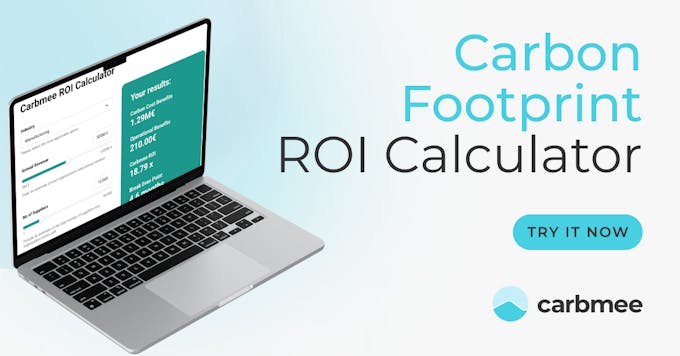Introduction
As businesses and organizations across the globe become more committed to sustainability, decision-making processes are evolving to meet the demands of a changing world. Sustainable decision-making involves more than just environmentally-friendly choices; it means assessing goals, navigating challenges, and seizing opportunities to align with long-term environmental, economic, and social goals.
In 2025, sustainable decision-making has become central to business success, and organizations that invest in it today are better positioned to lead in a low-carbon economy tomorrow.
What are your thoughts on the goals, chances, and challenges of sustainable decision-making? Head over to our survey to find out.
Why Sustainable Decision Making Matters More Than Ever
The push towards sustainability is no longer optional. Consumers, investors, and regulatory bodies are increasingly pressing businesses to adopt more sustainable practices. This has created an urgent need for organizations to integrate sustainability at the very core of their decision-making processes, from supply chain management to energy use and employee engagement. The goal is clear: to support a resilient economy that values both profit and the planet.
But how can organizations make meaningful progress, and what stands in their way?
Who Needs to Be Involved, and Who Owns the Decisions?
Sustainable decision-making is a collaborative effort that requires participation across all levels of an organization. While sustainability initiatives may be spearheaded by dedicated environmental or corporate responsibility teams, meaningful progress depends on internal alignment among departments such as finance, operations, human resources, and marketing.
Key decision-makers must work together to ensure that sustainability goals are not siloed but integrated across all functions. Ownership of sustainable decision-making ideally rests with senior leadership, who set the tone and expectations for the entire organization. Executive sponsorship is crucial, as it demonstrates commitment from the top and ensures that sustainability is prioritized as a core business strategy.
Equally important is fostering a data-driven approach, where accurate metrics inform strategies and track progress, allowing leaders to make decisions based on measurable outcomes rather than assumptions. This requires a strong foundation of data collection, analysis, and transparency to set benchmarks and monitor performance over time. With executive sponsorship, cross-functional alignment, and data-driven insights, organizations can create a robust framework for sustainable decision-making—one that empowers employees at all levels to contribute to a shared vision for a more sustainable future.
The Crucial Role of C-Level Involvement
For sustainable decision-making to truly transform an organization, active involvement from C-level executives is essential. The CEO, CFO, Chief Procurement Officer (CPO), and other top leaders play a vital role in embedding sustainability into the company’s strategy, culture, and operations. The CEO sets the vision and overall direction, signaling to stakeholders that sustainability is a strategic priority. The CFO’s involvement ensures that financial planning and resource allocation align with sustainability objectives, balancing profitability with long-term impact. The CPO, on the other hand, is instrumental in driving sustainable procurement practices, ensuring that suppliers and sourcing decisions support environmental goals.
Each executive brings a unique perspective and area of influence, creating a holistic approach to sustainability. With their guidance, sustainable decision-making can move from isolated initiatives to an integrated strategy that drives both organizational and environmental benefits. This top-level support not only empowers teams throughout the company to align with sustainability goals but also positions the organization as a leader in responsible business practices, equipped to navigate the complexities and opportunities of a sustainable future.
Integrating sustainability into corporate strategy not only benefits organizations but also enhances the success and tenure of C-level executives. A study published in the Journal of Business Ethics found that longer-tenured CEOs positively moderate the relationship between corporate social responsibility (CSR) and firm performance, suggesting that sustained commitment to CSR initiatives contributes to both organizational success and executive longevity.
Additionally, research by Russell Reynolds Associates indicates that Chief Sustainability Officers (CSOs) who report directly to the CEO are more likely to achieve their environmental, social, and governance (ESG) targets. This alignment not only advances the company's sustainability goals but also reinforces the CSO's role and stability within the organization.
Key Goals of Sustainable Decision Making
- Reducing Carbon Emissions:
For many organizations, lowering greenhouse gas emissions remains a top priority. With global climate agreements setting ambitious targets, businesses are tasked with tracking, managing, and ultimately reducing their carbon footprint. - Efficient Resource Management:
Efficiently managing resources, such as water, energy, and raw materials, helps reduce waste and lower costs, making it both a financially and environmentally sound approach. Companies are increasingly recognizing that sustainable resource use also boosts resilience against market volatility. - Strengthening Brand Reputation:
Organizations today know that sustainability is more than a trend—it’s a competitive advantage. As more consumers prefer to support companies with strong environmental commitments, prioritizing sustainable decision-making enhances brand loyalty and trust. - Aligning with Regulatory Standards:
With tighter environmental regulations on the horizon, staying ahead of compliance requirements is essential for long-term success. Companies that proactively meet or exceed these standards can avoid costly fines and strengthen stakeholder relationships.
Chances and Opportunities for Sustainable Decision Making
The journey toward sustainability presents numerous opportunities for forward-thinking organizations:
- Innovation and Product Development:
Sustainable decision-making often leads to the development of new products and services. From eco-friendly packaging to renewable energy solutions, sustainability-focused innovation opens doors to untapped markets. - Access to Green Funding:
As financial institutions prioritize sustainability, green financing options are becoming more accessible. Organizations that adopt sustainable practices may qualify for favorable loans, grants, and investment opportunities. - Enhanced Resilience:
Sustainability efforts make organizations more adaptable to supply chain disruptions, regulatory changes, and shifting market demands. By planning for sustainability, companies can improve their agility and resilience in an unpredictable world.
Challenges Facing Sustainable Decision Making
Despite the many benefits, sustainable decision-making is not without its challenges:
- Initial Costs and Investments:
Transitioning to sustainable practices often requires upfront investments, whether in technology, training, or process adjustments. For some businesses, these costs can be daunting without clear immediate returns. - Data Management and Measurement:
Tracking and measuring sustainability metrics can be complex, especially for large organizations with extensive supply chains. Reliable data is crucial for setting meaningful sustainability goals, but achieving this level of transparency can be challenging. - Balancing Short-Term vs. Long-Term Gains:
Sustainable practices may not always deliver immediate financial returns, leading some companies to prioritize short-term profits over long-term impact. Navigating this balance requires a shift in organizational culture and commitment from leadership.
The Business Benefits of Sustainable Decision Making
Embracing sustainable decision-making offers companies tangible benefits that extend beyond environmental impact, unlocking economic gains, talent retention, and a stronger competitive edge. Research from Deloitte reveals that companies with robust environmental, social, and governance (ESG) practices have 13% higher financial performance than their peers, demonstrating that sustainability is not just good for the planet—it’s good for business. Furthermore, a Harvard Business Review study showed that firms with strong ESG initiatives enjoy a 4.8% lower cost of capital, making sustainability an attractive strategy for long-term financial health. According to a Gartner report, organizations that prioritize sustainability in their operations are 2.6 times more likely to financially outperform their competitors, emphasizing the economic benefits that come from resource efficiency, reduced waste, and lower energy costs.
Sustainable practices also provide a distinct advantage in attracting and retaining talent. A global survey by PwC found that 83% of workers believe their employers should take a stand on environmental issues, while over 70% said they would be more loyal to companies committed to sustainability. For younger generations, in particular, sustainability has become a key factor in career choices. Research from the World Economic Forum found that 77% of millennials consider a company’s social and environmental commitments when deciding where to work, and nearly half would take a pay cut to work at a purpose-driven organization. This focus on sustainability contributes to a purpose-driven workplace culture, leading to higher employee satisfaction and productivity.
From a competitive perspective, sustainable decision-making enhances brand reputation and resilience, offering a strategic advantage in today’s increasingly transparent and accountable market. Research by McKinsey has shown that companies with strong sustainability practices benefit from increased customer loyalty and brand trust, as 63% of global consumers prefer to buy from companies with a clear environmental agenda. Additionally, a study by NYU Stern’s Center for Sustainable Business found that products marketed as sustainable grew 5.6 times faster than those that weren’t, highlighting consumer preference for brands that prioritize sustainability. In an era where investors, customers, and employees alike are evaluating companies on their environmental and social impacts, sustainable decision-making has become a key differentiator, setting forward-thinking companies apart and positioning them for long-term success.
The Path Forward: A Call to Action
As we move into 2025, sustainable decision-making is an essential part of shaping a resilient, responsible, and successful future. Organizations that take proactive steps today—setting ambitious goals, engaging with opportunities, and tackling the challenges head-on—will be well-prepared to lead in the years to come.
Carbmee is committed to supporting organizations on this journey, offering solutions that make sustainable decision-making more accessible, measurable, and impactful. For more insights on industry averages, challenges, and best practices, stay tuned for our upcoming whitepaper, which will be available in early 2025.
Whether you’re at the beginning of your sustainability journey or seeking to enhance your existing efforts, now is the time to prioritize sustainable decision-making. By doing so, you’re not only building a stronger organization but also contributing to a future where business success aligns with environmental stewardship.
Take Carbmee's Sustainable Decision-Making in 2025 survey
![[object Object]](https://images.prismic.io/carbmee/ZyyQAK8jQArT0cQj_Sustainabledecisionmaking.png?auto=format,compress)



